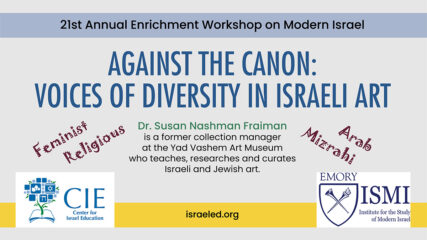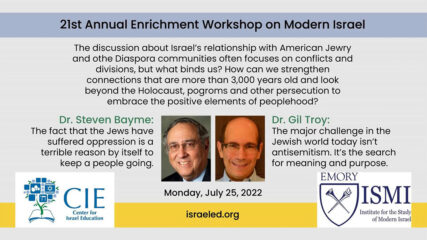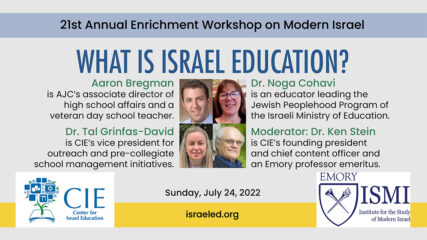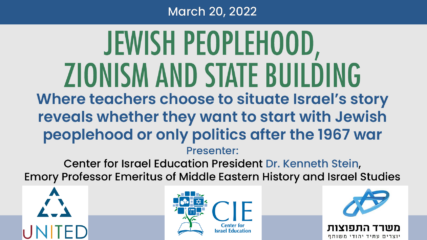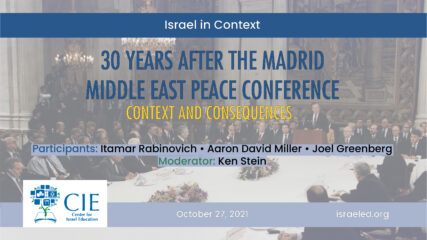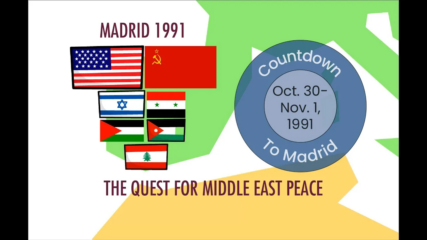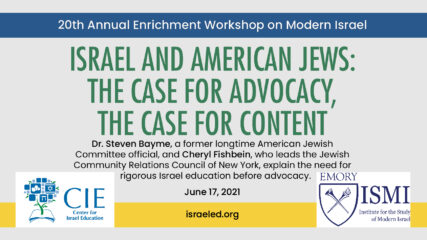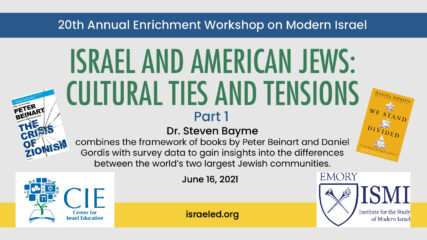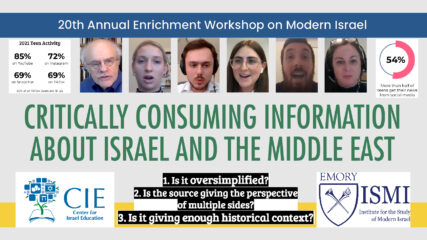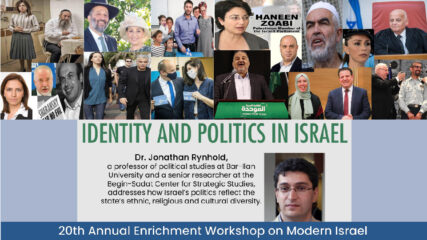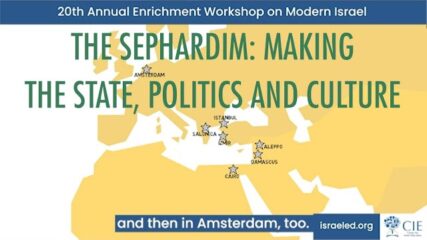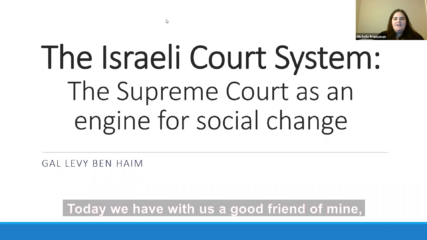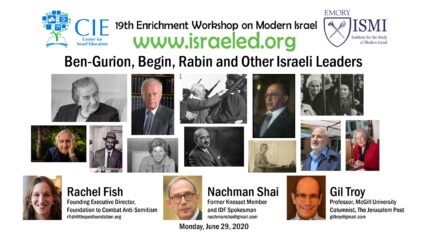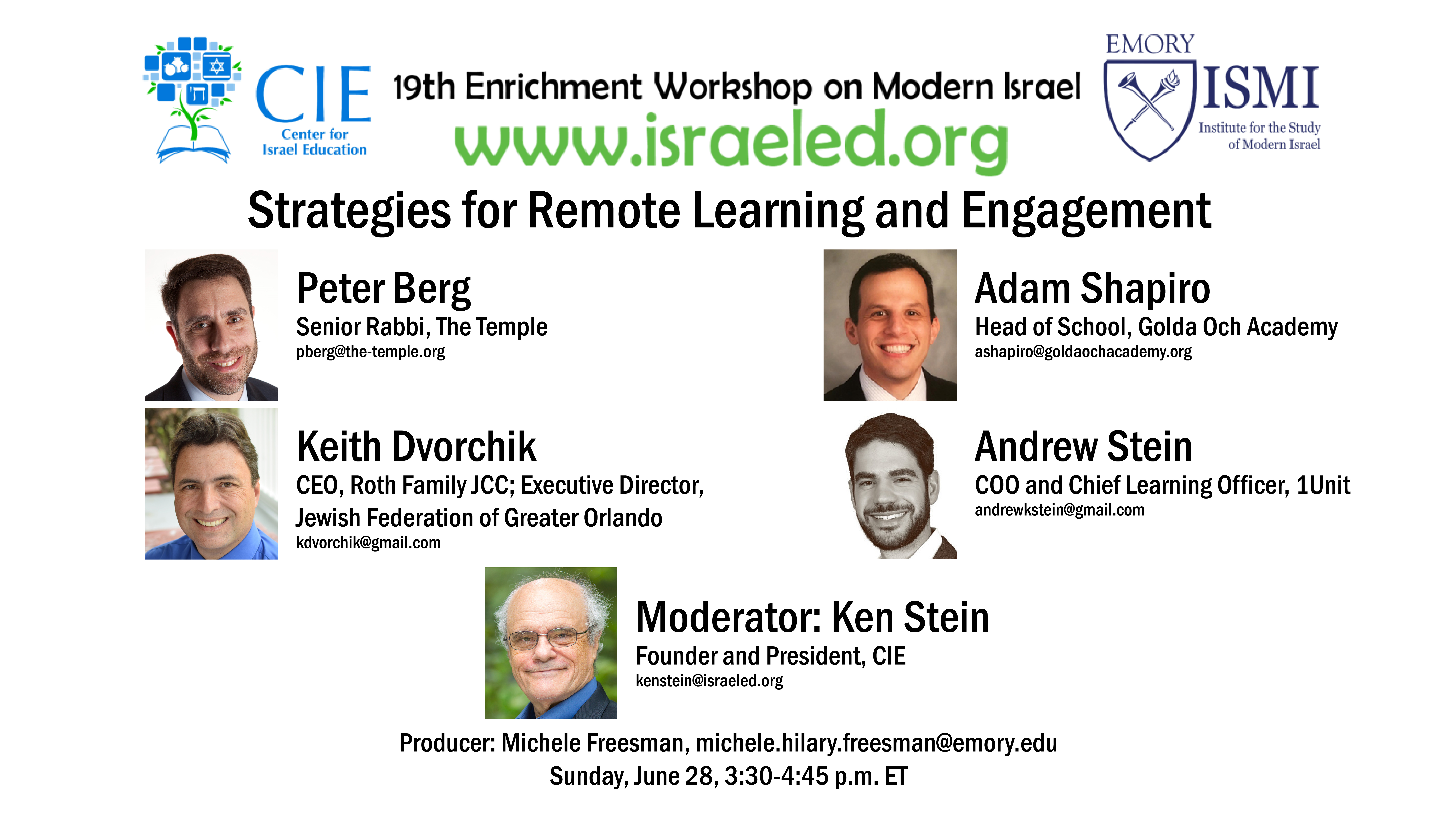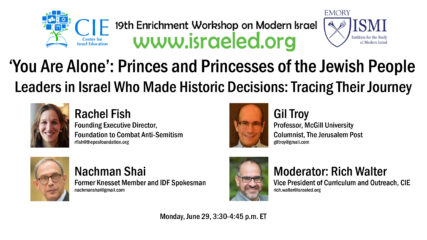Dr. Susan Nashman Fraiman: Against the Canon: Voices of Diversity in Israeli Art (44:21)CIE+
In less than 45 minutes, Israeli educator Susan Nachman Fraiman presents a taste of the variety of voices in Israeli art that have emerged in the past 20 years: female, religious, Mizrahi, Ethiopian and Israeli-Palestinian, all of which are rich subjects in themselves. We examine a few examples of works from each of these sectors and try to understand the rich background from which they come. This video is from a session July 25, 2022, at the 21st annual CIE/ISMI Enrichment Workshop on Modern Israel.

